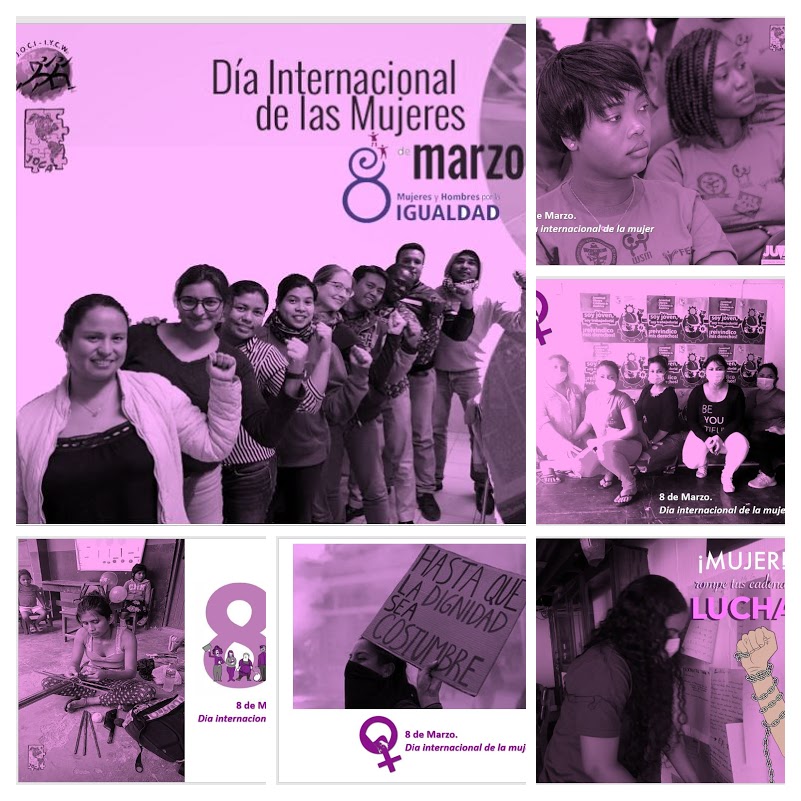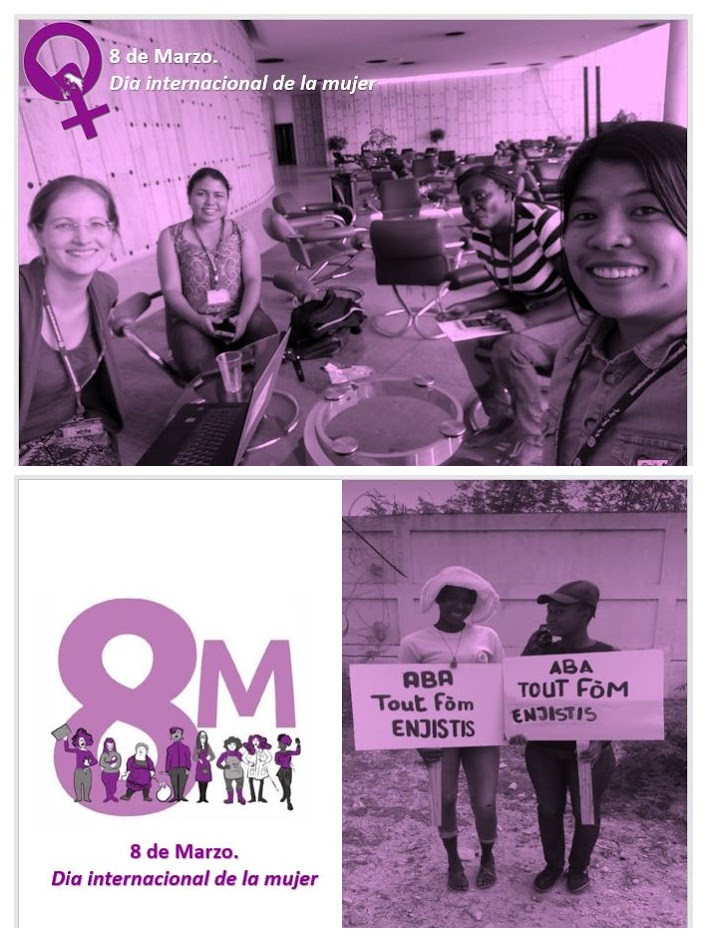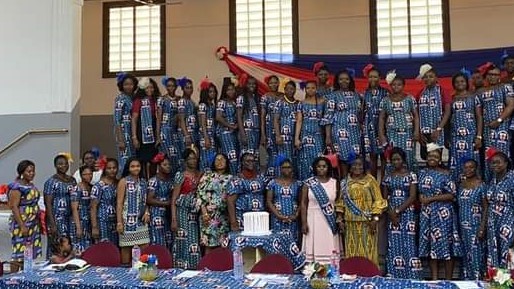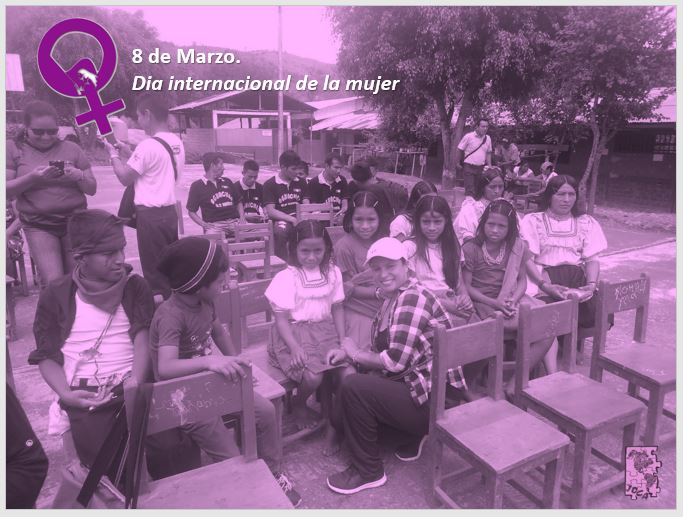
There is nothing very different in celebrating International Women's Day this year, except that the situation is even more precarious today and impacts a lot of young workers. Before the Covid-19 pandemic, young women workers were already suffering. With the conditions in their workplaces, many rights were neglected and not respected. Under the COVID-19 pandemic, young women workers in particular are being more affected, not only in terms of health risks, but also in terms of economic impact.
See
The pandemic has worsened existing inequalities. We need to look at its consequences for both men and women without forgetting the ethnicity, nationality, wealth and religion.
The percentage of deaths from Covid-19 is higher among men. Causes are seen both in immunological differences as well as behavioral habits rooted in culture and education such as lower attention to medical care, a higher trend for overweight, less handwashing and higher shares of male smokers.
Due to the labour market horizontal segregation, the consequences of the economic crisis for men and women can differ based on the sector that is mostly affected. In the current economic crisis, women are affected heavily.
The ILO sees four sectors at special risk of reductions of jobs and working time: accommodation and food services, business and administrative activités, manufacturing, wholesale/retail trade. All these sectors show a greater share in female participation. A high percentage of women employed in these sectors live in high-income and upper-middle-income country. However, the interruption of global value chains affects manufacturing jobs in low-income countries which are especially in lower ranks and the garment industry which employs a lot of women.

Domestic work is another sector absorbing a big share of female employment. Covid-19 confronts domestic workers with health risks because of insufficient protection at work, lockdowns and the difficulty to leave their employer’s home, job losses, and, in the case of migrant domestic workers, the risk of being trapped in their host country due to border closures.
The majority of care workers including sectors like education, social care and health care - characterized by long working hours, precarious contracts, low wages and levels of organization - are females. Healthcare workers are obviously in the frontline of the pandemic: they are faced with even longer working hours and high risks of infection due to insufficient protection and intense stress while being in direct contact with sick people. Violence and stigma toward healthcare workers increased. A lot of health workers in high and middle income countries are migrant workers, which can put countries with a weak health system at even greater peril.
The labour market is also vertically segregated. Women are under-represented in leading positions at work and in society. This reflects in “Corona-task forces” where men - often belonging to the dominant social group- dominate.
Apart from the sectors, the type of work obviously determines vulnerability. Informal workers, self-employed and temporary workers are particularly in danger of losing their jobs or income due to Covid-19. Women are highly represented in these types of work. Lockdowns, curfews and the suspension of orders from other countries mean a big decrease or the total loss of income for informal workers while social security lacks. For some, this means to continue working and risk to become infected. 42% of women in the informal economy work in the above-mentioned risk sectors.
A huge amount of working hours are done every day without being paid at all and often barely even recognized as work, e.g. unpaid care work such as cleaning, cooking and looking after the children and the elderly. Women spend more than double the number of hours with unpaid care work than men. Covid-19 has increased the care workload due to the closing of school/daycare, a non-availability of domestic workers and the need to look after the sick. For parents who telework from home, combining work and looking after the children is a challenge, especially for single parents, often single mothers. Female informal workers’ difficulties to combine childcare responsibilities with labour participation increased even more and reduced their incomes.
The significant contribution of women to a family’s survival does not guarantee their participation in decision-making in a household. Actually, the levels of female influence in this perspective vary considerably from one society to another. Domestic violence, though affecting both men and women but by far mostly women, has increased in the aftermaths of lockdowns.

Governments took measures to react to the consequences of the crisis. However, these could obviously not hinder a global rise in inequalities: the vertical and horizontal segregation of labour, unequal pay and unequal distribution of unpaid care work between sexes. All these inequalities are related to discrimination, which again might increase. These inequalities and the underlying stereotypes have negative consequences for all humanity, not just for women. An obvious example of their negative impact on men is the higher mortality by Corona also caused by a lack of care for their own body.
Judge
As a movement, we oppose every form of enslavement and discrimination as we believe in the God who freed the slaves. The reality we see contradicts this value of freedom since it limits the choices of men and women.
We also believe in the God of justice: The Tora protects the poor and weak. These social rights need to be respected. Jesus shares a parable of God as Judge open to bring justice to his chosen ones “who cry out to him day and night“ (Lk. 18:6-7). The reality we see contradicts this value of justice since we see unequal opportunities in gainful employment and in society for all human beings. There is no ethical justification for a gap between the salaries of men and women or uneven access to dignified work.
Pope Francis stresses the connection of physical and verbal violence towards women with the unequal access to dignified work and roles in decision-making. As Catholic Church, we should be happy about any disappearance of discrimination because of the “equal dignity of men and women.“ (Amoris Laetitia 54)

Humans are called to join God and act as his messengers to realize God’s kingdom on earth, to spread justice and peace. If humans fail to do it, God will not interfere on earth since we were given a free will. This fundamental task should be accomplished through every action we take. Thus: the human work is mission. This character of work as a mission cannot be separated from dignity and responsibility: human beings must not act against their values doing their work. This can be a severe challenge in the current reality if, for example, a health worker feels the responsibility to give quality care to a patient but is not given the time to be able to do it. As is obvious in this example, in order for humans to fulfil our mission, we must be aware of it. Also, our living and working conditions must not contradict the mission in all our spheres of life and our surroundings: they must be dignified and allow responsibility, for which security is in many cases a precondition. The reality, however, contradicts this value since we see precariousness and informality, causing insecurity for the workers and contradicting God’s image.
A deeper look at care work reveals further contradictions. Its factual relevance is – not only in the current crisis, but maybe now more than ever – evident. Its ethical relevance shows in understanding work as contributing to creation, as caring for each other, our community and our earth which implies a human dimension of care. We all should care for each other and work creatively together. Care cannot be attributed to one particular group.
“Work” must be respected and we should take care of the Earth. Hence, care work must be valorized as one way of fulfilling our mission, as participation in God’s creation and thus real work. However, looking at the current system, we see many forms of care work (paid and unpaid) barely recognized as work. Working conditions and salaries also express valorization, or in this case a factual lack of valorization. On the contrary, we see work which is not contributing to nature or humans, such as work in the weapon and ammunition industry, connected to much better working conditions and monetary acknowledgement than even the paid forms of care work, not to mention the crucial but invisible hours spent on unpaid care work.

This is not only illogical as it discredits the very jobs needed to guarantee the continuity of the system: a system with such a misanthropic valuation is obviously itself inhumane.
It thus needs transformation towards justice and dignity while putting care work in the center.
Act
This International Women's Day is an opportunity for us to stand and voice out our resistance to unjust treatment to women in every stratum of our society. We must revive the spirit and enthusiasm of young workers to stand beside women’s struggles.
A cultural call should be strengthened to develop consciousness of inequalities, to raise awareness that care work has a human dimension and everyone should participate in it. This is a matter of cultural patterns as well as of social protection and “job-culture”. In order to give everyone the possibility to join in unpaid care work, societies may need a reduction of remunerated working hours for all.
Obviously, both governments and private sectors need to act for more gender equality. Measures taken by states can be to follow up the ILO conventions on this matter, such as No. 100 on Equal Remuneration and No. 111 on Discrimination (Employment and Occupation). Furthermore, governments should be encouraged to ratify the ILO convention on gender based violence in the world of work (No. 190) including ensuring strong implementation.
Just Social Protection is needed worldwide. This implies dignified working conditions as well as a safety net for all. Social Protection must be organized in solidarity. Everyone should contribute to it, including significant shares from transnational companies.

Governments need to be encouraged and required to seriously improve working conditions, including wages, and representation rights of workers in care services. It is obviously not enough to clap on balconies or express public praise, but the care work factual and ethical relevance must be translated into conditions allowing dignified work.
Trade unions, CSOs, NGOs and church institutions must continue to organize informal workers and care workers close to informality while governments should follow Recommendation 204 to formalize informal work. Significant steps need to be taken to regulate the labour market and achieving safe and dignified work instead of so many precarious work forms existing all over the world especially for young people and women.
However, all this should not hinder a serious reflection by all of us: how can we use this current interruption of economic processes and global value chains as a chance for a transformation into a global economy respecting everyone’s dignity?

 English
English  Español
Español  Français
Français